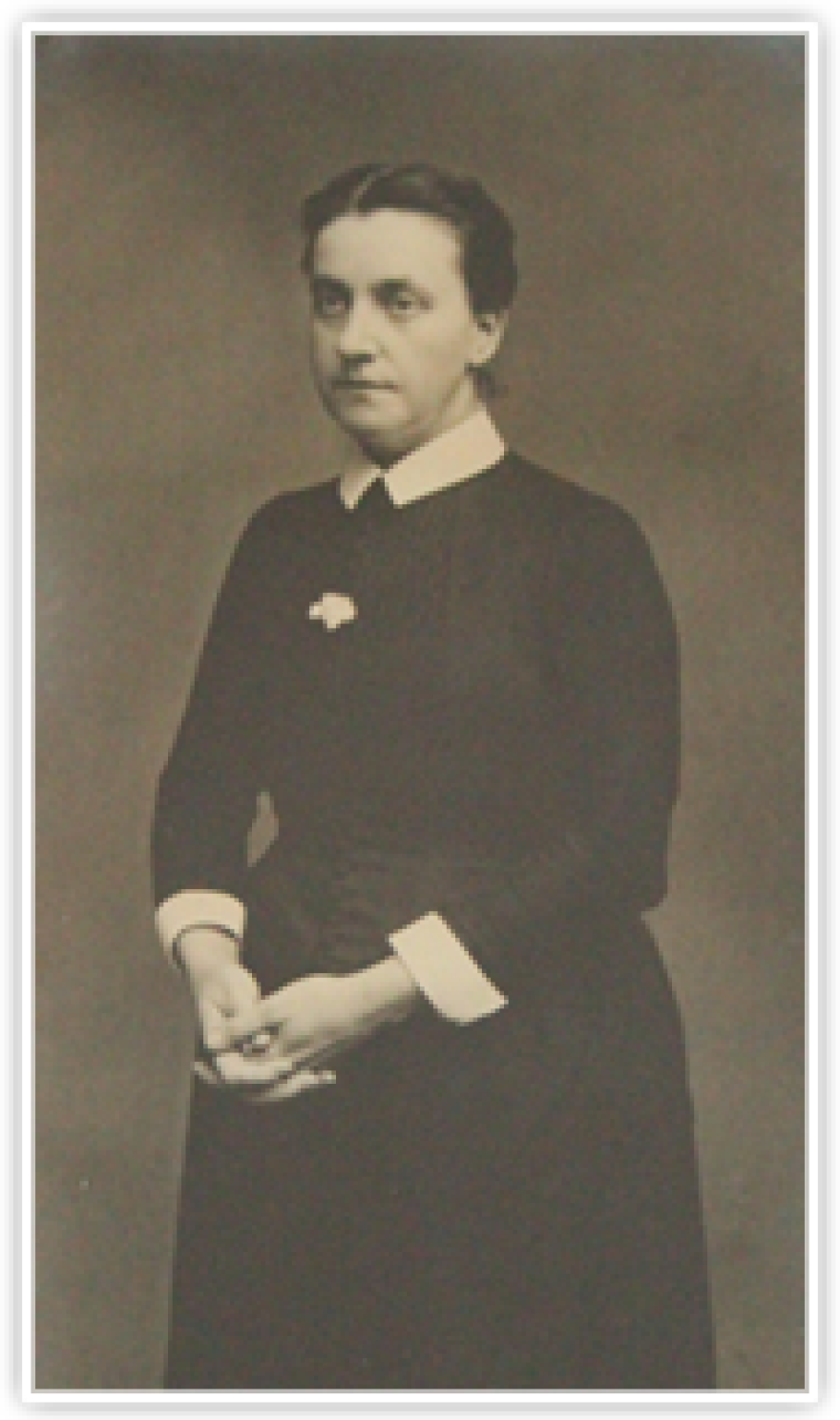
The Remarkable Women of Forest Lawn: Charlotte Mulligan
The Remarkable Women of Forest Lawn: Charlotte Mulligan

As we celebrate Women’s History Month, we continue to look at the remarkable lives of women whose names may not be as widely known as their accomplishments would suggest. Such is the case of Charlotte Mulligan.
On September 25, 1844, Henry and Sally Mulligan gave birth to their third child, a daughter whom they named Charlotte. Her two older brothers, James and Grieg, welcomed her into the world, finding they enjoyed having a little girl to play with, to cuddle, and to tease. And she in turn, loved the attention they showered upon her. Years later, three more boys were born, securing Charlotte’s place as the only girl in the Mulligan family. Consequently, unlike many young ladies of her day, Charlotte grew up as forthright and strong-willed as any male, competing at every opportunity with her brothers for her time in the spotlight.
Sadly, her brother, Morris, born two years after her, died within a year of his birth. And though Charlotte was only three, it is probable that her baby brother’s early death made an impression on her. Certainly, Charlotte’s parents and older brothers would have grieved for the child. But the Mulligan family, like many who faced a high child mortality rate in the 19th century, moved past their sorrow and two more boys, Henry and Edward, arrived in due course.
At the age of 17, Charlotte was teaching Sunday School at the Wells Street Chapel of the First Presbyterian Church of Buffalo. One would think that Charlotte’s young life would have been filled with the excitement of teas and dances and parties with her fellow graduates of the Buffalo Female Academy, as well as the serious satisfaction of performing her duties as a teacher of Bible stories while instilling Christian values and instructing her young pupils in the ways to lead a good and moral life – giving to the poor, helping those who were not as fortunate as the wealthy and privileged society from which she came. But it was 1861, and the country was poised to enter the bloodiest war in United States history. The Mulligan family believed in the Union which faced secessionists in 11 Southern states, forming the Confederacy.
Charlotte’s own great grandfather, General Israel Chapin, was a hero of the American Revolutionary War, who at the direction of George Washington himself, oversaw the signing of the Canandaigua Treaty between the Six Nations of the Iroquois and the United States government. Certainly, the Mulligan family had a heritage of patriotism and peacemaking that must have made the choice of going to war to defend the United States a difficult yet inevitable one. It was with a heavy heart that Charlotte and her family watched as the two older boys went off to fight. And by 1863, both James and Grieg were dead. It was a double tragedy that changed Charlotte’s life forever.
She announced that she would never marry, and would devote herself to the care of the young men devastated by the war, who were wandering the streets, hungry and homeless. She founded a shelter for Civil War veterans on Washington Street, where she instituted an honor system called the “Guard of Honor” which awarded them privileges if they went to school, found a job, and participated in healthy social and cultural activity, such as a (musical) band she organized. She took great care of “her boys” and even purchased a cemetery lot in Forest Lawn Cemetery for the Guard of Honor and a memorial for them where members were interred.
Years later, Charlotte, along with other graduates of the Buffalo Female Academy, later known as the Buffalo Seminary, formed the Graduates Association. It was this group of women who may have built the Chapter House, in 1884, on Johnson Park, which currently houses the New Phoenix Theater. This may have been the first clubhouse built for and by women in America. Later, in 1894, Charlotte founded an independent club for women which became known as the Twentieth Century Club. Its purpose was to advance the interests of education, literature, and art. The club prospered at the site Charlotte had purchased at 595 Delaware Avenue which had once been the old Delaware Avenue Baptist Church. Eventually, a new and more attractive clubhouse was added to the front of the lot. Charlotte was eagerly planning to the open the doors of the renovated club for dignitaries and visitors from all over the world who would be arriving for the Pan American Exposition, a world’s fair, that was set to open in Buffalo, NY in 1901. Sadly, Charlotte died before this wonderful celebration could take place.
Charlotte Mulligan was a powerhouse and one of the most cultivated and cultured women in the city of Buffalo. She was an educator, a musician, a talented Soprano who performed and taught voice and violin at her studio on Johnson Park. She was also a music critic at the Buffalo Courier for 20 years. She may have been Buffalo’s first newspaper woman and founded a writer’s association called the Scribblers. As a well -known doyenne in Buffalo society, she would famously appear on the town, sporting a white carnation in her lapel.
On June 20, 1900, at the age of 55, Charlotte Mulligan passed from this earth and into history. She is buried here at Forest Lawn in section L with her two older brothers, who gave their lives for the Union, for the United States of America. And like them, she is honored and revered for what she gave back to the all the young men who suffered from war, and for all women, young and old, then and now, who see her as a pioneer.

